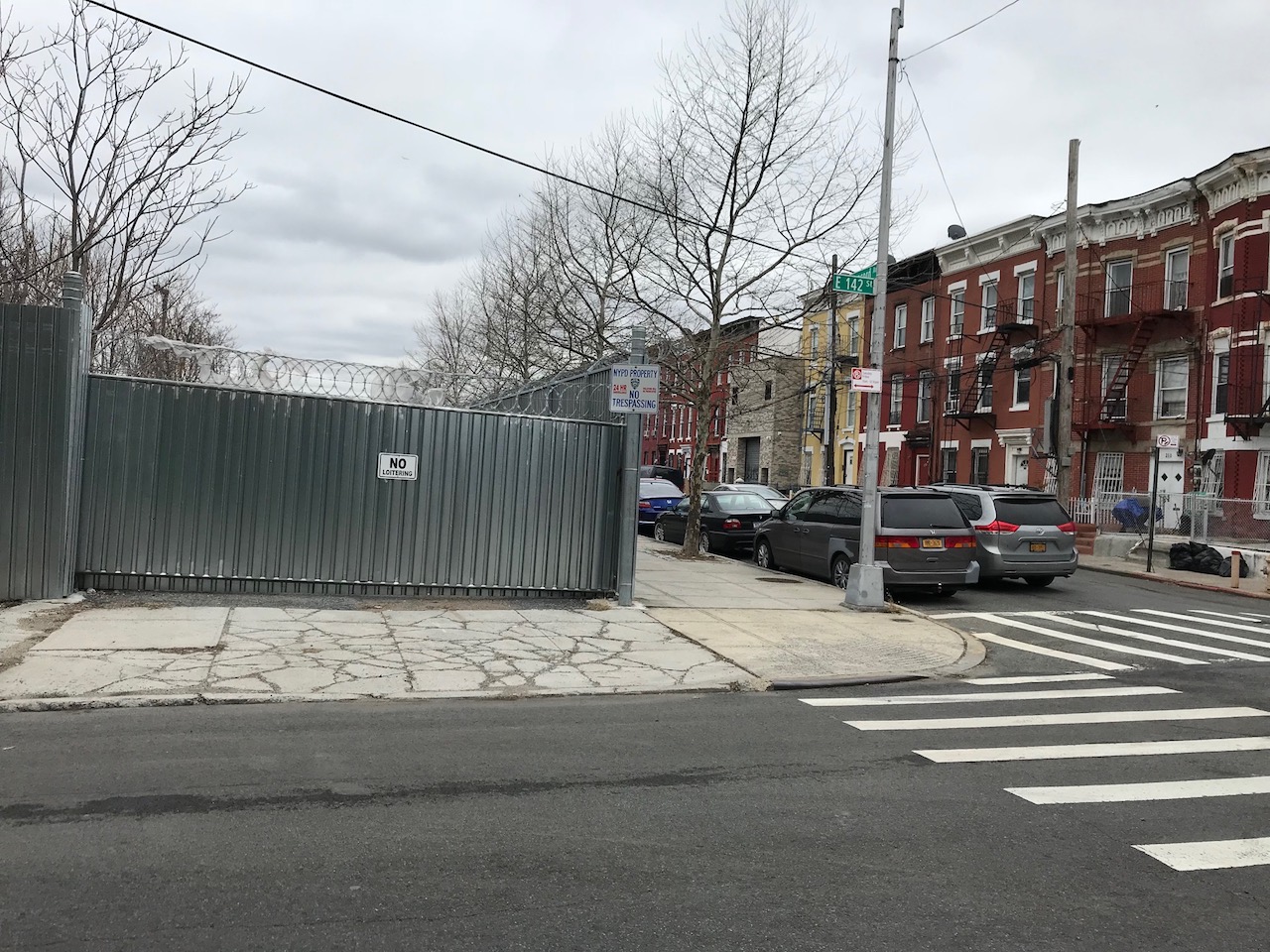
Public invited to discuss jail plans at PS 65 at 677 E. 141st St. on Thurs. Mar. 6 at 6 p.m.
A Bronx councilman who opposes the city’s plan to build a jail in a residential part of Mott Haven is floating another possible location for the facility: A parking lot behind the E. 161st Street criminal courthouse.
Mayor Bill de Blasio announced in February that the city will eventually shut down the decrepit and dangerous facility on Rikers Island and replace it with four smaller jails in the boroughs, including one on the site of a 4 1/2 acre NYPD tow pound on Concord Avenue next to the Bruckner Expressway. The plan calls for Manhattan, Queens and Brooklyn jails to be built on the sites of existing detention facilities, leaving the Bronx as the only borough in which a new facility is needed.
Reaction has been fierce in Mott Haven, where residents have said they will fight the project. City Councilman Rafael Salamanca Jr. says he is on their side, and that although the time has come to replace Rikers with smaller, borough-based jails, the area is overburdened, with a jail barge in Hunts Point, Horizon Juvenile Center near The Hub, 30 shelters and more than 400 cluster site apartments for the homeless.
“I am pissed off” about the plan, Salamanca told Community Board 2 in Longwood at a Feb. 28 meeting. Although “the mayor came to me and they lobbied for this jail,” he said, the 161st Street courthouse parking lot “is exactly where it should go. What we need is affordable housing.”
The proposed site is just outside his Council district, but Salamanca chairs the Council’s Land Use committee, meaning that the review process (ULURP) for a new jail site will have to go through him.
In April 2016, after news outlet DNAinfo reported that the mayor was secretly considering putting a jail on the site of a parking lot near the jail barge, Salamanca and state Sen. Jeff Klein held a press conference at the Hunts Point site, promising to fight the plan. It has not been publicly raised since then.
City Councilwoman Diana Ayala, whose district the tow pound is located in, got a chilly reception when she tried to reassure Community Boards 1 and 2 at February meetings that residents will have ample opportunity to weigh in before a site is finalized. After studying a report issued by a judicial commission last year about the need for smaller, safer jails, Ayala said, she came away convinced that Mott Haven can benefit from such a deal, by demanding new schools and affordable housing in exchange for a jail.
“We might have a chance to leverage other opportunities,” she told Board 1 in Melrose at its February meeting, and added that “it’s not the demon that we’re making it out to be. Let’s at least have the conversation.”
One Board 1 member said she worried that elected officials will ignore any demands the community makes, likening the situation to what happened when residents mobilized to fight the city’s proposal to provide FreshDirect with nearly $100 million in subsidies to move to Port Morris in 2011. Despite local outcry, Borough President Ruben Diaz Jr. supported the city’s plan, paving the way for the food delivery company to move in.
“We need our legislative leaders to back us,” said Josephine Burns. “Not like they did with FreshDirect.”
A Patterson Houses resident said that the presence of a jail would have a negative impact on young residents. “Them dudes, after they finish their program, they’re still in the neighborhood,” recruiting vulnerable youth, Keith Mason told Board 1.
A prominent local housing advocate says the project is another instance of city officials being tone deaf to a neglected neighborhood.
“Stakeholders are being left out,” said Arline Parks, Vice Chair and CEO of Diego Beekman Mutual Housing Association, adding that residents have long fought to reduce crime and drugs in their area. “This has been a 22 year struggle to turn this neighborhood around. Everybody here has a family member who’s been impacted by the drug trade.”
Residents of the 38 buildings and 1,238 apartments that comprise Diego Beekman Houses organized for years, and eventually paid $80 to obtain the property in 2003. It extends from 138th Street up to St. Mary’s Park, between Jackson and St. Ann’s avenues. De Blasio himself worked with the residents in the 1990s, when he was the Department of Housing and Urban Development’s regional director for the metro area, trying to help secure funds to repair their rundown apartments.
The argument advocates make for building jails in low-income neighborhoods like Mott Haven—because more inmates are from those neighborhoods and their family members can visit them more easily—is misguided, said Parks.
“They’re confusing the issue of humane facilities and criminal justice reform with the rights of a community that’s been overburdened and saturated,” she said.
Diego Beekman’s board has been meeting with city agencies and local and state representatives since 2016, in hopes of creating a neighborhood revitalization plan on the tow pound site. Their plan includes 533 units of affordable housing, a homeownership component, and other amenities such as retail space, a supermarket, and light manufacturing they say could create up to 300 jobs. Only one elected official, Rep. Jose E. Serrano, has provided a letter of support for their project.
When Diego Beekman’s board presented the ambitious development plan to city officials in 2016, Parks said, the city declined, arguing that there was no alternate site to move the tow pound.
The public is invited to take part in a Town Hall meeting at Mother Hale Academy/PS 65 on 677 E. 141st Street on Thursday, March 8 at 6 p.m., to debate the city’s plan.

